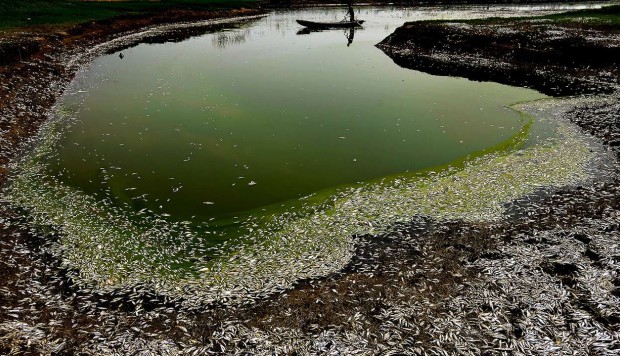80 per cent of groundwater in China’s major river basins is unsafe for humans, study reveals
Monday, 11 April, 2016

About 80 per cent of groundwater in the mainland’s major river basins is unsafe for human contact, a survey by the Ministry of Water Resources has found.
The ministry last year tested 2,103 wells in the basins of the Yangtze, Yellow River, Huai River and Hai River, finding that exploitation and pollution from industrial and agricultural emissions were the biggest threats to water standards.
The results, which covered 18 provinces, were released on the ministry’s website yesterday, the first time it has published water quality information in its monthly update – previously it has included only data such as depth and quantity.
While nitrate pollution was a common and major cause of concern, in some regions groundwater was contaminated by toxic heavy metals and organic pollutants, which are more difficult to remove.
India’s air pollution taking the shine off Golden Temple, the holiest shrine in Sikh religion
Nearly half – 47.3 per cent – of wells tested were found to have fifth grade, or “extremely bad”, water quality and about a third had fourth grade, or “bad” water quality. None of the wells had “excellent” water quality.
Ma Jun, director of the Institute of Public and Environmental Affairs, said fourth- or fifth-grade groundwater was so polluted it was no longer safe for human contact.
The severe contamination of shallow groundwater systems was a result of pollution in rivers and lakes from industrial and agricultural emissions, said Ma.
The water ministry’s finding that about 80 per cent of groundwater nationwide was polluted was significantly higher than the 60 per cent figure released previously by the Ministry of Environmental Protection.
Chinese tourists pollute pond water in park by feeding cash to fish for good luck
The environment ministry’s data was calculated from nearly 4,900 monitoring sites in 202 cities.
It was not clear whether the two ministries’ monitoring sites overlapped.
The difference between the two ministries highlights a chronic problem in the environmental management of the country’s water resources – the ministries for land, environment, and water are often in dispute over regulatory responsibilities.
Critics say the groundwater quality standards are outdated and monitoring is insufficient, suggesting that surveys may not reflect the full scale of pollution.
For instance, the two-decade old standards do not cover petrochemical pollutants.
No comments:
Post a Comment
Comments always welcome!